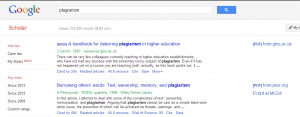Health information is often difficult to navigate. Try a quick PubMed search and you’ll instantly get a sense of the number of published articles that are out there, and that’s not even everything (Tip: Filter your results using the article type “systematic reviews”–not “reviews”–to narrow down your results, and favour Cochrane reviews for their rigor; alternatively, use PubMed Clinical Queries).
Where am I going with this? Well, clinicians are busy people and it is obviously really important for them to stay on top of things. How are some ways they do this using McGill-licensed resources? These resources just happen to be available to the entire McGill community, so they are worth a look even if you are not a busy clinician.
Many clinicians are huge fans of UpToDate. It’s a really expensive resource and one we have great trouble affording, but it is definitely worth a look. It’s easy to use (designed for free text searching; look for your terms within articles using CTRL-F on a PC or CMD-F on a Mac if they’re not in the article title). Evidence is not always graded, although they are improving this.
An alternative to UpToDate and a nice option if you’re an avid mobile device user is DynaMed. We began licensing it this past spring, and one key advantage of it over UpToDate is that you can download all the content onto a mobile device, which means you don’t need an internet connection to view it. The app is a bit clunky but the content is there. Levels of Evidence are pretty consistently applied.
Health is important to just about all of us, so why not give these point-of-care tools a try?

